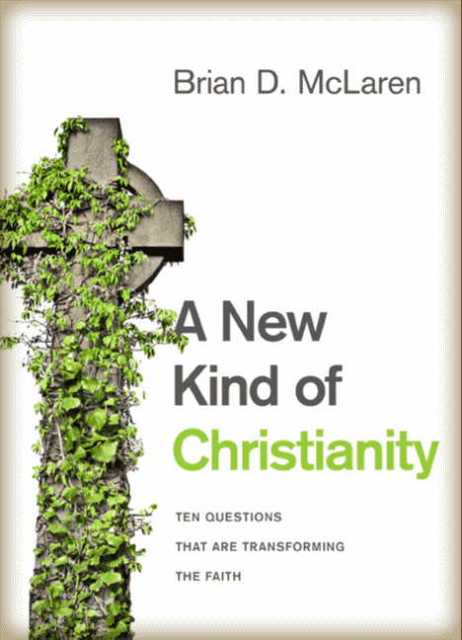Transformation for the Church
Many of us recognize the need for transformation in our own lives and in the church. We need wise principles to help us respond well to God’s guidance into this transformation.
Brian McLaren’s latest book, A New Kind of Christianity: Ten Questions that are Transforming the Faith, offers resources for the kind of transformation we need today. Brian wrote this book in the style that makes his writing so engaging.
The questions McLaren explores are important, ranging from questions of biblical interpretation, God and violence, the centrality of Jesus, the Church, sexuality, religious pluralism, practices, Church tradition, and more.
I found the chapter on the future hopeful and helpful. Although Brian doesn’t identify himself as an Open theist, his view of time coheres well with Open theology. The vision he offers denies God’s foreordination, although he leaves open the door for God’s foreknowledge.
Brian uses a label to talk about the future that I also find useful. We both argue for a “participatory eschatology.” I happily discovered prior to reading this book that Brian and I share the view that we must cooperate with God to establish the kingdom in the present and future.
Overall, Brian’s book seems to me not so much about leaving the past and its traditions. The new kind of Christianity he advocates involves a recovery of some of the best Christian themes from yesteryear. Brian brings these themes to bear, however, on what transformation means today and for the future.
What Brian says in this book will sound new to some readers. But many of us have affirmed this general vision of Christianity for some time.
My favorite chapter in the book comes near the end: “Living the Questions in Community.” In it, Brian offers advice to this question:
“Our church or denomination is open, so how can we help it experience transformation through this quest?”
Here are Brian’s bullet points of advice to answer this question. I’ve added one quotation from the paragraphs Brian writes after each point:
1. Get a consultant.
“There is enormous power in having the guidance of a wise, gifted, and experienced person who remains outside your congregation or denominational system.”
2. Build new parastructures to foster new approaches.
“The Methodist movement began this way in the Anglican Church, as a parallel structure sustaining and supporting new ways and practices (or methods) of Christian faith.”
3. Expect to bring in a new day with new people.
“It’s the young leaders, often without formal credentials, who can help established denominations change in ways the ‘properly trained’ can’t.”
4. Add. Don’t subtract.
“New creeds are written to supplement rather than replace the old…”
5. Develop a theology of institutions.
“Guided by a maturing theology of institutions, wise leaders of ‘priestly’ institutions will always keep a listening ear open to the prophets of movements for change, who will similarly see the priestly leaders of institutions not as enemies, but as colleagues in a greater work.”
6. Preach the Bible.
“I’m convinced that our quest is on the side of the Bible wisely read and applied.”
7. Employ experiential learning.
“Many people won’t ‘get it’ until they also go through an ‘abductive’ experience,” an experience that helps them see in a new way.”
8. Keep your short-term expectations low and your long-term hopes high.
“If you want to go fast, go alone. If you want to go far, go together.”
I think this advice is helpful. I’d like to join with those in my own denomination and across Christendom to explore what each might mean for us today.

Comments
I appreciate McLaren’s list, and see the benefits of most of the points that he mkes. The one that stood out to me the most is number 6.Preach the Bible. As we look at the decline of Christianity in our culture, and the increased battles that are being fought in the church, it is clear that the Christians of today are not familiar with what the Bible actually teaches. We are indeed a biblically ignorant culture. We focus on the themes of salvation and giving, but leave out the majority of scripture that focuses on how we live in every day life. If we are to fulfill the great commission, we must be aware of “all that I have taught you.”